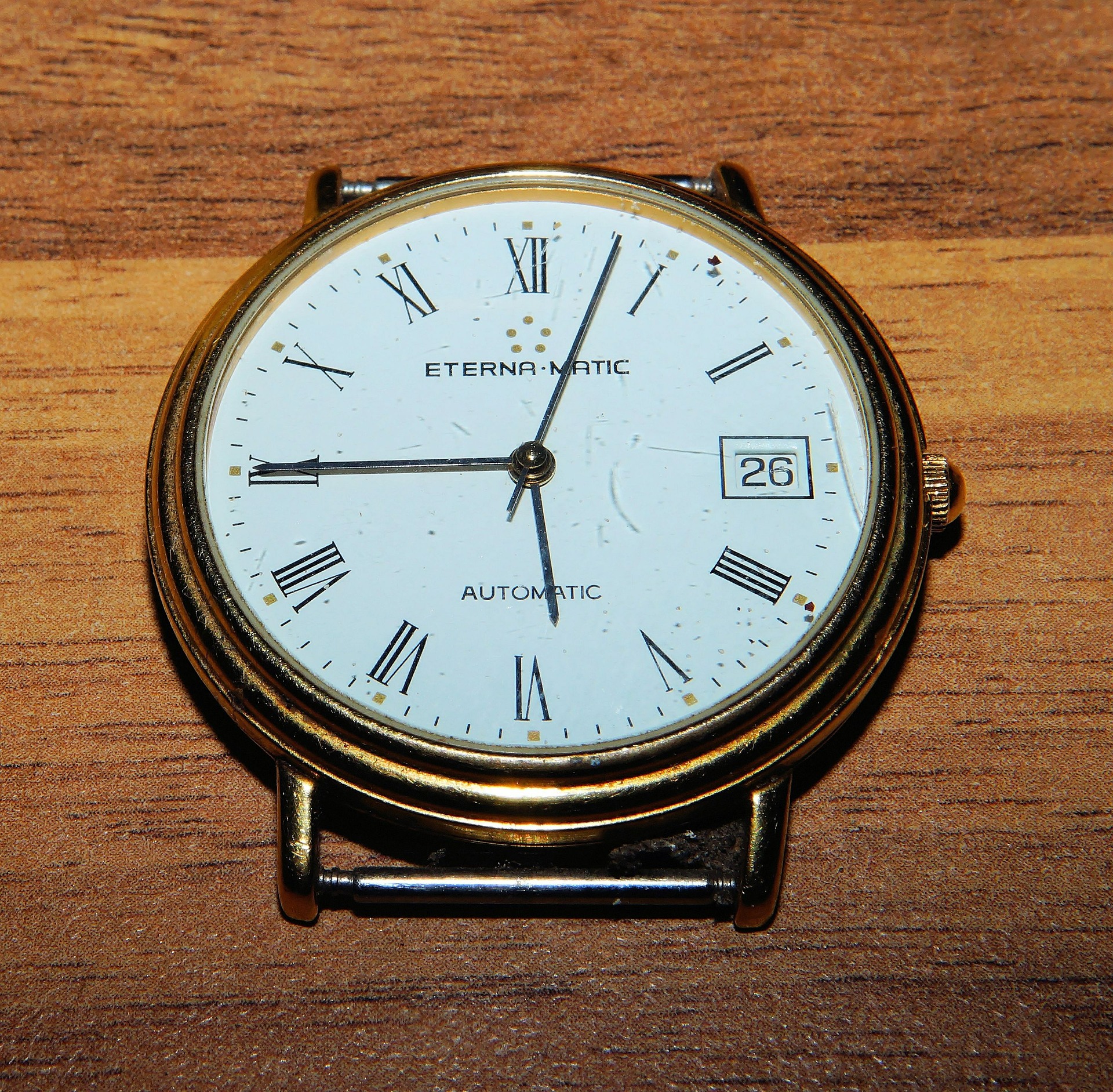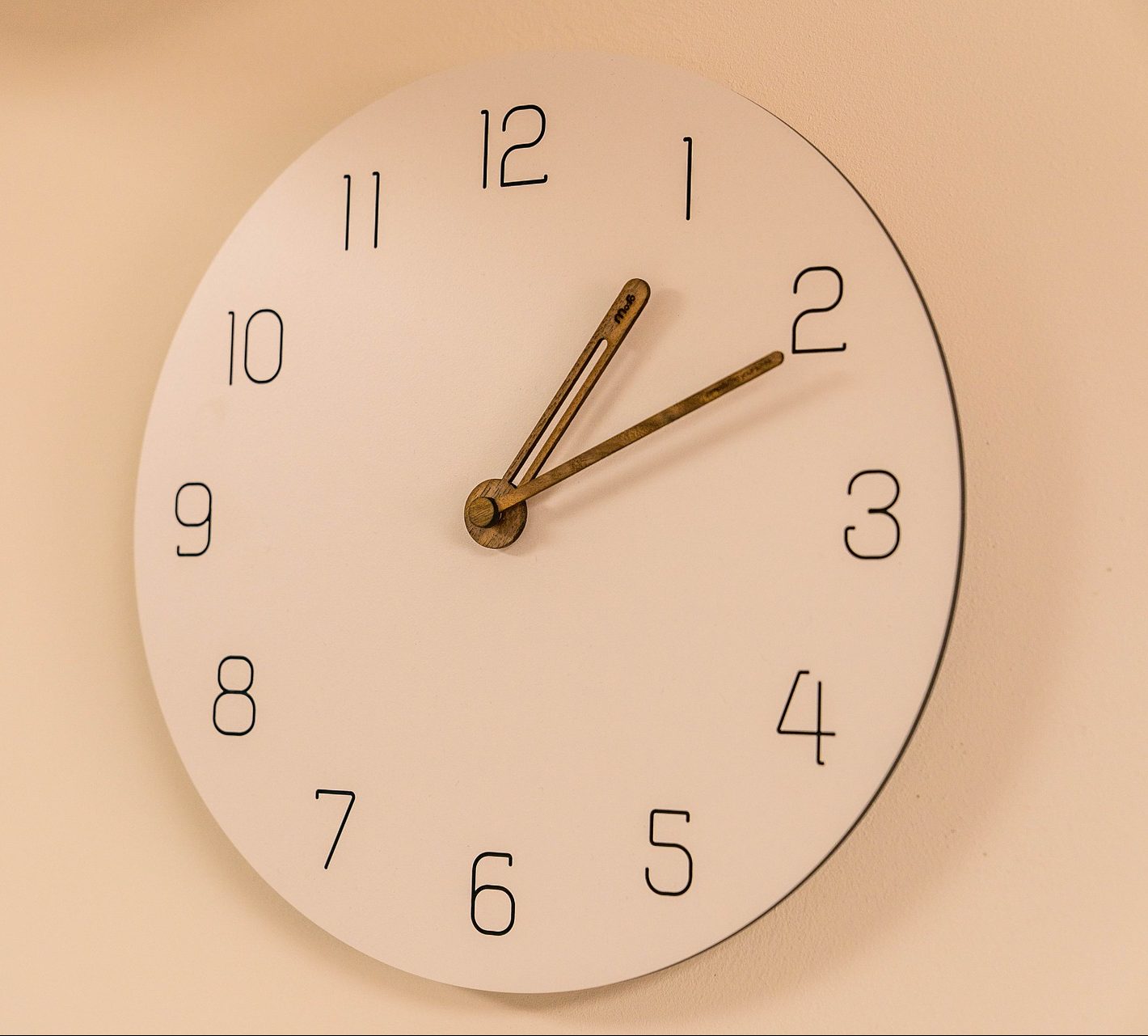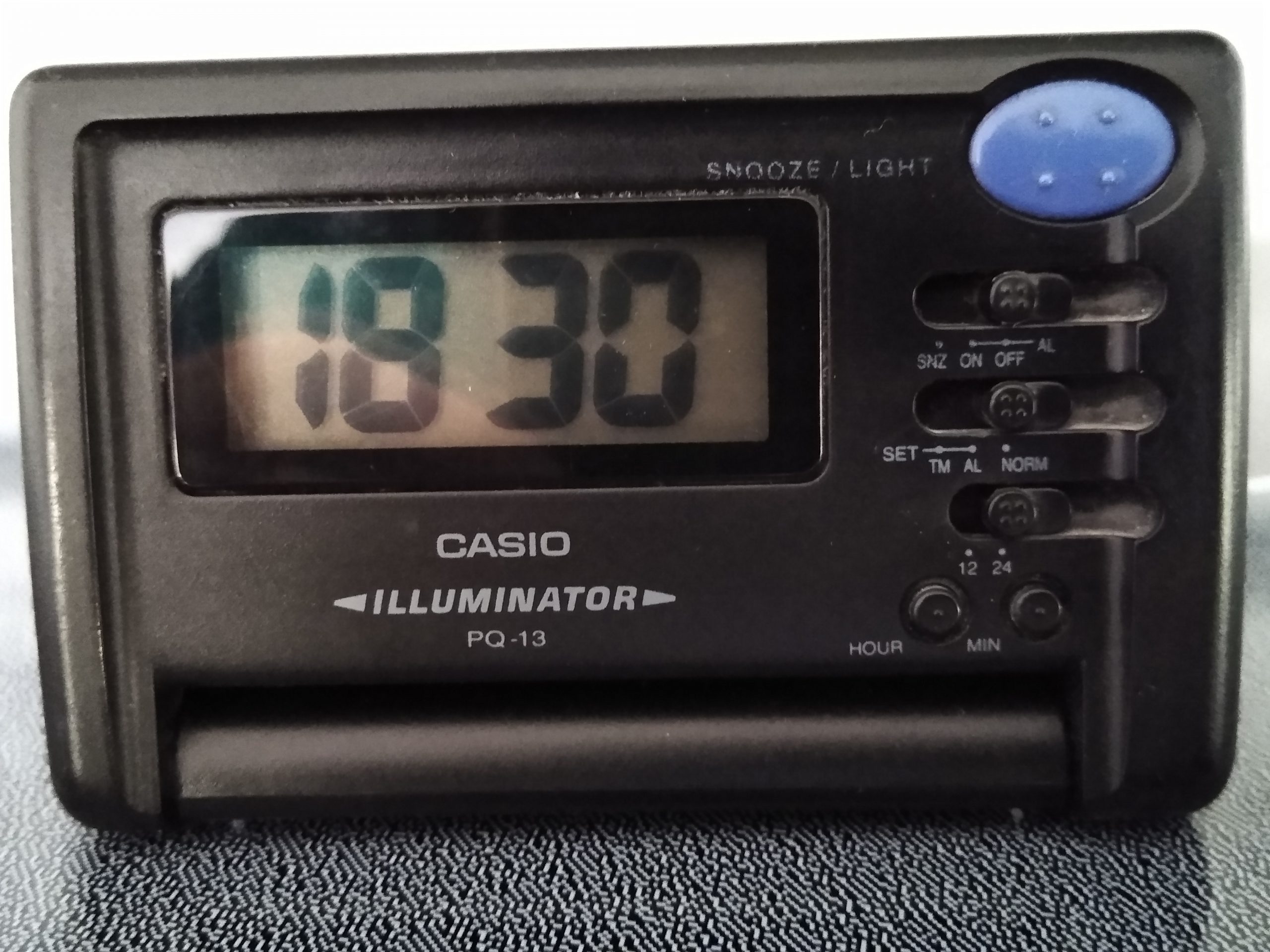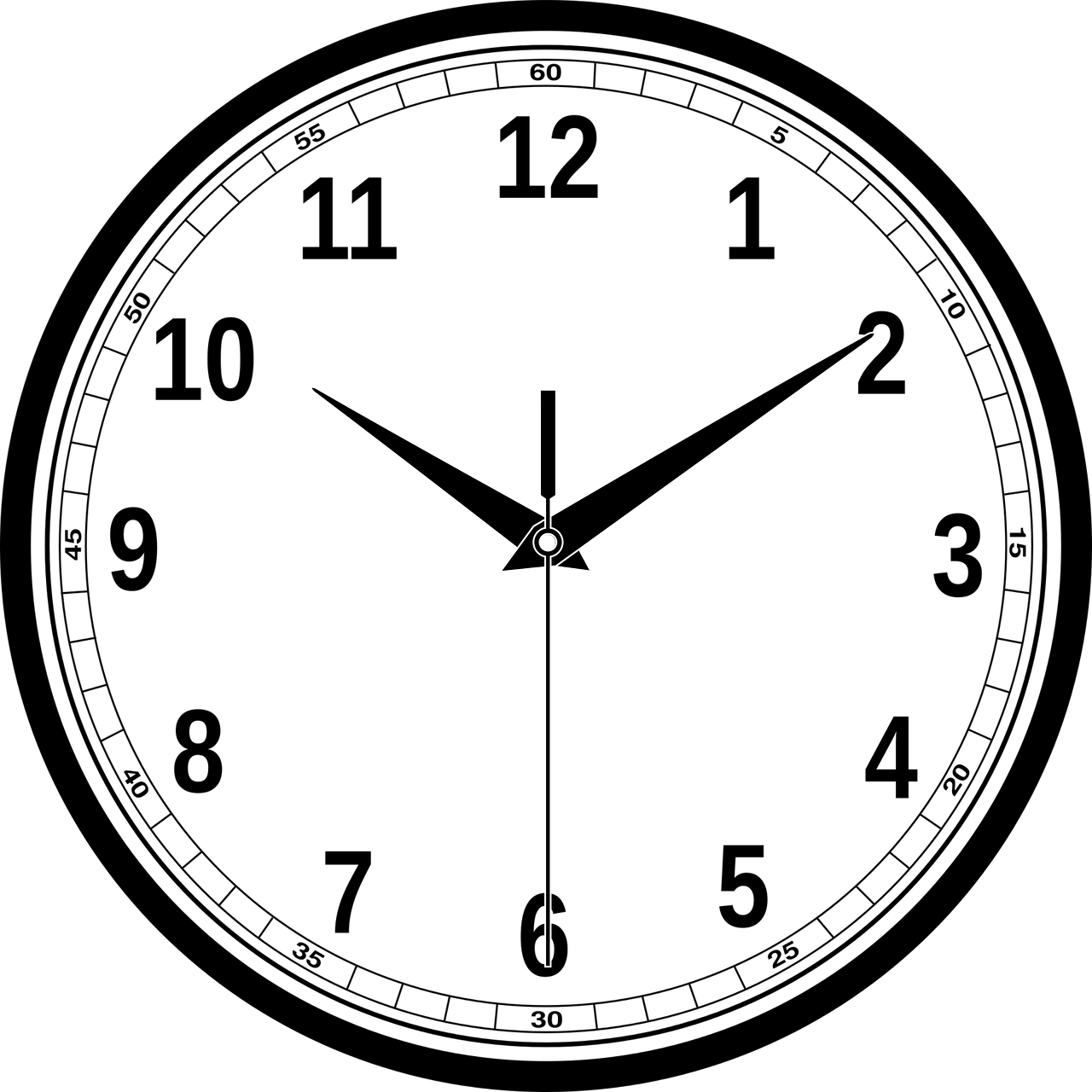2.8: 2.6-
- Page ID
- 82686
Einheit 2.6 (online)
Uhrzeit
Usually, we express time in colloquial terms, just like in English, using a 12-hour clock.
 |
 |
 |
| Es ist Viertel vor sechs. | Es ist zehn nach eins. | Es ist halb sieben. |
(* You cannot use colloquial (inofficial) time with the 24-hour clock)
For some situations (train schedules, time announcements, programs, etc.), the 24-hour clock is used for formal (or official) time telling. You also need to include the word Uhr between the hour and the minutes.
| 17:45 | Es ist siebzehn Uhr fünfundvierzig. | 13:10 | Es ist dreizehn Uhr zehn. | 18:30 | Es ist achtzehn Uhr dreißig. |
In order to avoid confusion about the time of day, you could add the following adverbs of time which refer to different parts of the day:
morgens: in the morning nachmittags: in the afternoon
vormittags: in the morning abends: in the evening
mittags: around noon nachts: at night
For example:
 |
Es ist zehn nach zehn abends. |  |
Es ist Viertel nach zwölf mittags. |
This is particularly handy when you ask when an event is taking place or when you are meeting with someone and you need to be sure of the time, for example:
| Wann ist der Deutschkurs? – Um 9 Uhr morgens. | When is German class? – At 9am. |
| Wann treffen wir uns? – Um 4 Uhr nachmittags. | When do we meet? – At 4pm. |
Notice that you have to include “um” in front of the time in your answer.
Similarly, when you indicate a specific day, you have to use “am” in front of the day:
Wann hast du Chemie? – Am Montag.
Was hast du am Dienstag? – Am Dienstag habe ich Biologie.
If you want to express a duration of time, you need to say: “von … bis”
Mein Deutschkurs ist von 11-12 Uhr.
When you talk about months or seasons, you use the word “im”:
Wann hast du Geburtstag? – Im April.
Wann ist das Wetter schön? – Im Sommer.
Im Herbst ist es oft windig und im Winter ist es kalt.
![]() Übung 1. Drag the time phrases to the correct time.
Übung 1. Drag the time phrases to the correct time.
The original version of this chapter contained H5P content. You may want to remove or replace this element.
![]() Übung 2
Übung 2
The original version of this chapter contained H5P content. You may want to remove or replace this element.
Word Order in Statements and Questions
Please work through the following presentation to learn about word order in statements and questions:
![]() Übung 3
Übung 3
The original version of this chapter contained H5P content. You may want to remove or replace this element.
![]() Übung 4
Übung 4
The original version of this chapter contained H5P content. You may want to remove or replace this element.
![]() Wortschatz in Quizlet:
Wortschatz in Quizlet:
![]() Was wissen Sie jetzt? Klicken Sie hier für Quiz 2.6.
Was wissen Sie jetzt? Klicken Sie hier für Quiz 2.6.
Extra Practice (optional):
![]() Video Serie – Nicos Weg
Video Serie – Nicos Weg
Click on the link and watch the video. Then click on “start” under the video and do the exercises.
Media Attributions
- clock © Karsten Paulick is licensed under a Public Domain license
- clock © gosari05 is licensed under a Public Domain license
- clock © OpenClipart-Vectors is licensed under a Public Domain license
- clock © KTEditor is licensed under a Public Domain license
- star © IO-Images is licensed under a Public Domain license
- link © IO-Images is licensed under a Public Domain license
- check mark © janjf93 adapted by Solomon Hajramezan is licensed under a Public Domain license


